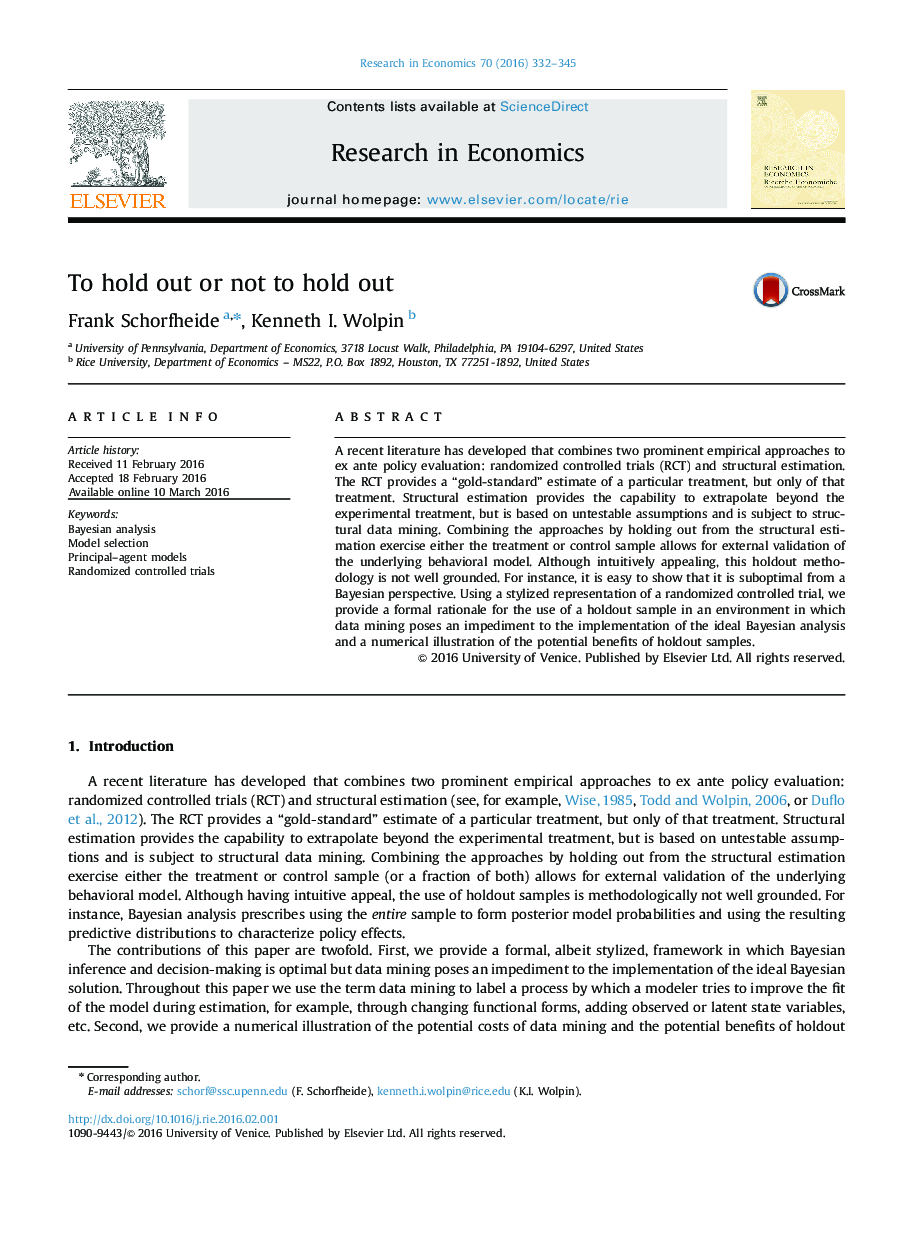| Article ID | Journal | Published Year | Pages | File Type |
|---|---|---|---|---|
| 984420 | Research in Economics | 2016 | 14 Pages |
•Randomized controlled trials allow for estimation of treatment effects.•Structural estimation allows for extrapolation of treatment effects.•Holding out observations from the estimation allows for external model evaluation.•We provide a framework in which data mining hinders ideal model evaluation.•We provide a numerical illustration of the potential benefits of holdout samples.
A recent literature has developed that combines two prominent empirical approaches to ex ante policy evaluation: randomized controlled trials (RCT) and structural estimation. The RCT provides a “gold-standard” estimate of a particular treatment, but only of that treatment. Structural estimation provides the capability to extrapolate beyond the experimental treatment, but is based on untestable assumptions and is subject to structural data mining. Combining the approaches by holding out from the structural estimation exercise either the treatment or control sample allows for external validation of the underlying behavioral model. Although intuitively appealing, this holdout methodology is not well grounded. For instance, it is easy to show that it is suboptimal from a Bayesian perspective. Using a stylized representation of a randomized controlled trial, we provide a formal rationale for the use of a holdout sample in an environment in which data mining poses an impediment to the implementation of the ideal Bayesian analysis and a numerical illustration of the potential benefits of holdout samples.
